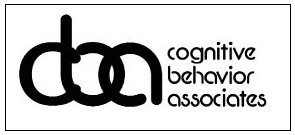Hearing Voices And other ‘out-of-the-ordinary’ experiences
Hearing voices that other people don’t hear and holding beliefs that you or others find “out-of-the-ordinary” are experiences that can be associated with distress, confusion, and fear. Many people report that these experiences get in the way of personal goals and social relationships; some, however, report that they are useful. These experiences have many names – one might be given a diagnosis of psychosis, schizophrenia, schizoaffective disorder, or schizophreniform disorder. Other diagnoses including depression, bipolar disorder, PTSD, borderline personality disorder, and OCD can also be associated with these experiences. These experiences can even come about without a formal mental health diagnosis, such as from sleep deprivation (Waters et al, 2018), isolation, or grief (Grimby et al., 1993). Some people interpret their experiences not as “symptoms” but in terms of spiritual/religious experiences, psychic abilities, or mediumship skills (Heriot-Maitland, Knight & Peters, 2012). Regardless of what you call these experiences, many people benefit from help with understanding their experiences, learning coping skills, and finding ways to engage or re-engage in social life and goals related to work or education. For the sake of ease and consistency, we will use the word “psychosis” for the rest of this article, but please tell your clinician what you would like to call your experiences.
Cognitive Behavioral Therapy for psychosis (CBTp) is an evidence-based treatment that helps individuals with these experiences by making the experiences more manageable, improving mood, and improving anxiety (Thase, Kingdon, & Turkington, 2014). Most often, CBTp is conducted along with medication, but CBTp has also been shown to help individuals who do not show improvement with medication. Because of this strong research support, international guidelines have recommended the use of CBTp for individuals with psychosis (NICE, 2014; Dixon et al., 2010). Recently, the Substance Abuse and Mental Health Services Administration (SAMHSA, 2021) published a statement recommending CBTp as a standard of care in the US, calling it “the most well-researched psychotherapeutic intervention for psychotic disorders”.
Because the experiences of individuals with psychosis vary so widely, CBTp looks different for everyone. The main components are:
- Treatment engagement and creating a problem list. Many people come to CBTp treatment with prior negative experiences in the medical and/or mental health care space. Our first and most important step is to develop a relationship built on trust, compassion, and understanding. Normalizing your experiences and understanding you’re not “crazy” are critical to this first step.
- Assessing experiences. Your clinician will gain a thorough understanding of your history with psychosis and other life experiences. With your permission, your clinician will collaborate with your doctors (most importantly your psychiatrist) and potentially family members or partners to make sure everyone is on the same page. Together, we will determine if CBTp is the right treatment for you.
- Developing a collaborative understanding of links between significant life events, beliefs, emotions, and behaviors. Using your assessment, you and your clinician will work together to identify any connections between stressful events and psychosis.
- Applying coping skills. A wide range of coping skills can be helpful for psychosis, including but not limited to: developing new interpretations of events, compassion-focused interventions (e.g., Relating to Voices), emotion regulation skills, assertiveness skills, developing healthy habits related to sleep and exercise, medication management, and reducing substance use.
- Consolidating new learning. Practicing coping skills in your real life and conducting in-session and at-home experiments will help solidify what you’re learning in treatment.
We understand that finding assessment and treatment for psychosis is far from easy. Our program can only see individuals on an outpatient, once weekly basis at this time. For those who need a different level of care, here are some of the local programs that we regularly work with:
-UCLA Child and Adolescent Mood Disorders Program (CHAMP)
-Nationwide Program Directory of Early Psychosis Intervention Programs
Other online resources:
See our CBTp brochure for a printable version of this information.

